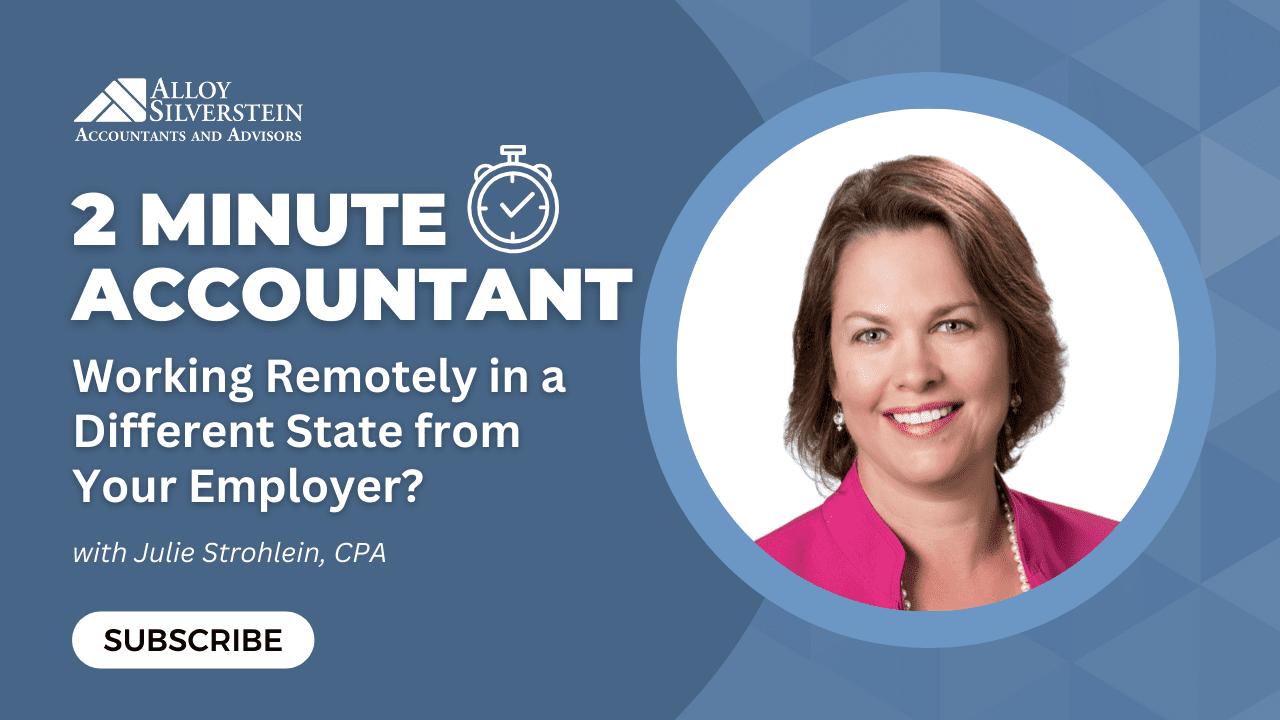

In the age of working remotely, you may be faced with the situation of working remotely out of one state while your employer is based in another. There may be tax implications that come along with this so here is what you need to know about the Convenience of the Employer Rule.
Income is generally taxable in the state in which it is earned. All of your income is taxable in your state of residence. If you have income sources from other states, you may owe tax to the other states, too.
An example is rental property. If I live in New Jersey but have rental property in Alabama, then I pay Alabama income tax on the rental income. I also have to pay New Jersey tax on the rental income. So am I paying double tax? Not exactly. As a NJ resident, I can take a credit against my NJ tax for any tax I have to pay to another state. Rental property is pretty cut and dried, because the property is where it is and it doesn’t change.
Convenience of the Employer Rule
If you live and work in the same state, then no problem! But what if you work from home in a state that is different from where your employer is located? In this case, we have to look at the state income tax law in both states. For many years, going back to way before the pandemic, New York has had a Convenience of the Employer Rule. This means that anyone who works for a New York company will pay New York tax, even if they do all their work outside of New York, unless they work at the remote location for the convenience of the employer. If the New York company mandates that you work in Virginia, for example, because your home operates as a bona fide business location of the company, then you may not have to pay New York tax and your income would only be subject to Virginia tax. Another example would be that you need to be in a particular location to use equipment that is not available in New York. This is narrow exception, however. If your New York employer merely allows you to work from home, then this is for your convenience, and not the company’s convenience. The company probably doesn’t care where you do your work, and they certainly aren’t forbidding you from doing the work inside New York state.
New Jersey Convenience of the Employer Rule
New Jersey has adopted the “Convenience of the Employer Rule” as of 2023.
If you work from home, your income is taxable in your home state (unless you live in one of the nine states that do not have personal income tax). If your employer is in the same state, then no problem.
If your employer is in a different state, however, that same income might be taxable in the employer’s state, too. Currently, there are only a few states that have the Convenience of the Employer Rule. This rule says that the income earned is taxable in the employer’s state unless you are working outside the state as a requirement of the job. New York has had this rule for a long time. If your employer is a New York company, your wages are taxable in New York even if you work 100% of the time from your New Jersey home. This is because your employer lets you work from home, but they would also let you work from within New York or any other location.
New Jersey just adopted this rule in August, but it is retroactive to January 1, 2023. If you work for a New Jersey employer, but you work from home in another state, the income could be taxable in New Jersey. This will only apply if your home state also has a Convenience of Employer Rule, though. The new rule does not apply to residents of Pennsylvania, since the existing reciprocal agreement between New Jersey and Pennsylvania governs the taxation of those wages. The rule will certainly apply to New York residents working for a New Jersey company, which levels the playing field since New York has been taxing New Jersey residents for years.
New Jersey employers should review the state tax withholdings of any non-resident employees. Any wages which become taxable under the new rule will create a tax liability which is the responsibility of the employee, but the employer could withhold the state tax as an accommodation. New Jersey will not impose penalty or interest on the employee if they begin complying with the new law as of September 15, 2023.
With the continuing trends from the pandemic runoff for employees to work from home and work remotely from states besides the one in which their employer is located, it is expected that more states will begin to adopt the Convenience of the Employer Rule as well. If you are unsure if this rule applies to your situation or have any questions at all, contact an Alloy Silverstein advisor today!


Associate Partner
Julie has over 20 years of experience in public and private accounting, representing varied clientele including the medical, legal, and real estate industries and trusts.
View Julie's Bio →